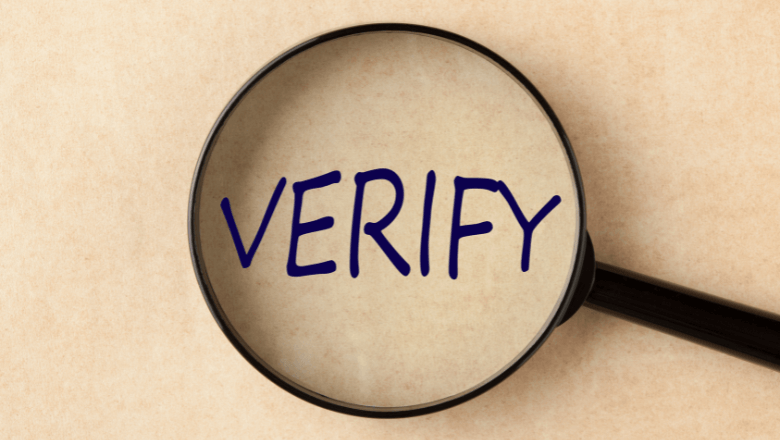As a CTO, finding an outsourcing partner can be daunting. The decision to outsource a part of your business operations is not easy, and it requires careful consideration of various factors.
Outsourcing partners can make or break a company’s success. They can help you reduce costs, increase efficiency, and focus on core competencies.
However, choosing the wrong partner can lead to significant problems such as project delays, quality issues, and budget overruns.
This guide brings exclusive insights and expert advice from a CTO on finding an outsourcing partner for your business.

- Here are some exclusive tips from a CTO on Finding an Outsourcing Partner
- Identify Your Business Goals and Objectives
- FAQ: How do I identify the tasks that I want to outsource?
- Evaluate Potential Outsourcing Partners
- FAQ: How do I evaluate the experience of a potential outsourcing partner?
- Determine the Communication and Collaboration Process
- FAQ: How do I ensure effective communication and collaboration with my outsourcing partner?
- Define the Service Level Agreement (SLA)
- FAQ: What should I include in the service level agreement?
- Consider the Cost
- FAQ: How do I ensure that the cost of outsourcing is reasonable?
- Ensure Data Security and Confidentiality
- FAQ: How do I ensure data security and confidentiality with my outsourcing partner?
- Plan for Project Management and Oversight
- FAQ: How do I plan for project management and oversight with my outsourcing partner?
- Consider the Cultural and Language Differences
- FAQ: How do I ensure that cultural and language differences do not affect my outsourcing partnership?
- Verify the Technical Capabilities
- FAQ: How do I verify the technical capabilities of my outsourcing partner?
- Start with a Small Project
- FAQ: Why should I start with a small project?
- Avoid Outsourcing the Core Competencies
- FAQ: What are the core competencies of my business?
- Choose a Partner who Values Long-term Relationships
- FAQ: Why is it important to choose a partner who values long-term relationships?
- Consider the Reputation and Track Record
- FAQ: How do I check my outsourcing partner’s reputation and track record?
- Evaluate the Communication Channels
- FAQ: How do I evaluate the communication channels of my outsourcing partner?
- Define the Scope and Deliverables Clearly
- FAQ: How do I define the scope and deliverables of the project clearly?
- Establish a Contract
- FAQ: How do I establish a contract with my outsourcing partner?
- Plan for Risk Management
- FAQ: How do I plan for risk management with my outsourcing partner?
- Establish Metrics and Performance Indicators
- FAQ: How do I establish metrics and performance indicators for my outsourcing partnership?
- Evaluate the Outsourcing Partner’s Scalability
- FAQ: How do I evaluate the outsourcing partner’s scalability?
- Monitor and Evaluate the Partnership
- FAQ: How do I monitor and evaluate the outsourcing partnership?
- Wrapping Up Finding an Outsourcing Partner
Here are some exclusive tips from a CTO on Finding an Outsourcing Partner

Identify Your Business Goals and Objectives
Before looking for an outsourcing partner, identify your business’s goals. Determine the tasks or processes you want to outsource and the expected outcome.
This will help you choose an outsourcing partner who understands your business needs and aligns with your business goals.
FAQ: How do I identify the tasks that I want to outsource?
You can thoroughly analyze your business operations to identify the tasks you want to outsource. Look for jobs or processes that are repetitive, time-consuming, or require specialized skills.
You can also consider outsourcing tasks that are not your core competencies, such as IT services or customer support.
Evaluate Potential Outsourcing Partners

Once you have identified the tasks you want to outsource, it’s time to evaluate potential outsourcing partners. Look for partners who have experience in your industry and specialize in the services that you require.
Check their portfolio, client reviews, and ratings to ensure they have a proven track record of delivering quality services.
FAQ: How do I evaluate the experience of a potential outsourcing partner?
To evaluate the experience of a potential outsourcing partner, you can ask for their portfolio and case studies. Check their client reviews and ratings on third-party review sites.
You can also request references from their previous clients and contact them to get feedback on their experience working with the outsourcing partner.
Determine the Communication and Collaboration Process

Communication and collaboration are essential for a successful outsourcing partnership. It’s important to determine the communication channels, frequency, and reporting mechanisms before starting the project.
Choose an outsourcing partner who can provide regular updates and progress reports.
FAQ: How do I ensure effective communication and collaboration with my outsourcing partner?
You can establish a communication plan and schedule regular meetings to ensure effective communication and collaboration with your outsourcing partner.
Use project management tools to track progress and share documents. You can also assign a dedicated project manager who can be a single point of contact for both teams.
Define the Service Level Agreement (SLA)

Service level agreements (SLAs) outline the scope of services, performance standards, and responsibilities between outsourcing partners and clients.
Defining the SLA before starting the project is essential to avoid misunderstandings or disputes.
FAQ: What should I include in the service level agreement?
The service level agreement should include the scope of services, performance standards, responsibilities, timelines, and payment terms. It should also have a clause for dispute resolution and termination of the contract.
Consider the Cost
One of the main reasons for outsourcing is cost savings. However, the cost of outsourcing can vary significantly based on the partner’s location, experience, and skill set.
It’s essential to consider the cost of outsourcing and ensure that it aligns with your budget and expectations.
FAQ: How do I ensure that the cost of outsourcing is reasonable?
To ensure that outsourcing costs are reasonable, you can request quotes from multiple outsourcing partners and compare their pricing.
You should also consider the outsourcing partner’s quality of services, experience, and expertise before deciding solely on cost.
Ensure Data Security and Confidentiality
Data security and confidentiality are critical for any outsourcing partnership, especially if you outsource sensitive or confidential information.
Choose an outsourcing partner with strict data security policies and procedures.
FAQ: How do I ensure data security and confidentiality with my outsourcing partner?
You can ensure data security and confidentiality with your outsourcing partner’s security policies, procedures, and ISO/IEC 27001 compliance.
You can also sign a non-disclosure agreement (NDA) with your outsourcing partner to ensure that your data remains secure and confidential.
Plan for Project Management and Oversight

Effective project management and oversight are essential for the success of any outsourcing project.
It’s essential to plan for project management and assign a dedicated project manager to oversee the project and ensure that it meets the desired outcomes.
FAQ: How do I plan for project management and oversight with my outsourcing partner?
To plan for project management and oversight with your outsourcing partner, you can establish clear goals, timelines, and milestones.
Assign a dedicated project manager to oversee the project and ensure it meets the desired outcomes. Use project management tools to track progress and share documents.
Consider the Cultural and Language Differences
Cultural and language differences can pose a significant challenge in outsourcing partnerships.
Choose an outsourcing partner who understands your culture and language or has experience working with clients from your region.
FAQ: How do I ensure that cultural and language differences do not affect my outsourcing partnership?
To ensure that cultural and language differences do not affect your outsourcing partnership, you can choose an outsourcing partner with experience working with clients from your region.
You can also establish clear communication guidelines and cultural awareness training for both teams.
Verify the Technical Capabilities

Ensure your outsourcing partner has the skills, expertise, and infrastructure to deliver quality services.
FAQ: How do I verify the technical capabilities of my outsourcing partner?
To verify the technical capabilities of your outsourcing partner, you can ask for their certifications, technical expertise, and infrastructure.
You can also conduct technical interviews and ask for work samples to ensure they have the necessary skills and experience.
Start with a Small Project
Starting with a small project can help you evaluate the outsourcing partner’s capabilities and ensure that they align with your business goals and expectations.
FAQ: Why should I start with a small project?
Starting with a small project can help you evaluate the outsourcing partner’s capabilities and ensure that they align with your business goals and expectations.
It also allows you to build a relationship with the outsourcing partner and establish trust before committing to a larger project.
Avoid Outsourcing the Core Competencies

Avoid outsourcing the core competencies of your business, as it can pose a significant risk to your business operations and strategy.
FAQ: What are the core competencies of my business?
The core competencies of your business are the activities or processes that give your business a competitive advantage in the market.
They are the unique capabilities that differentiate your business from your competitors.
Choose a Partner who Values Long-term Relationships
Choose an outsourcing partner who values long-term relationships and is committed to working with you to achieve your business goals.
FAQ: Why is it important to choose a partner who values long-term relationships?
Mutual respect, open communication, and trust are the hallmarks of a strong partnership.
In addition, it ensures that the outsourcing partner will work with you to achieve your business goals.
Consider the Reputation and Track Record
Consider the reputation and track record of the outsourcing partner before making a decision. Choose an outsourcing partner with a positive market reputation and a proven track record of delivering quality services.
FAQ: How do I check my outsourcing partner’s reputation and track record?
To check your outsourcing partner’s reputation and track record, you can read reviews and testimonials from their clients, check their social media profiles, and conduct a background check on the company.
Evaluate the Communication Channels

Any outsourcing partnership must be able to communicate effectively.
Evaluate the communication channels of the outsourcing partner and ensure that they align with your communication preferences.
FAQ: How do I evaluate the communication channels of my outsourcing partner?
To evaluate the communication channels of your outsourcing partner, you can ask them about their communication preferences and protocols and assess their response time and communication skills.
Define the Scope and Deliverables Clearly
Define the project’s scope and deliverables clearly to avoid misunderstandings and ensure that the outsourcing partner meets your expectations.
FAQ: How do I define the scope and deliverables of the project clearly?
The project scope document can include an outline of the objectives, timelines, milestones, deliverables, and expected outcomes.
You can also conduct regular status meetings to track progress and ensure that the outsourcing partner meets the project requirements.
Establish a Contract
Establish a contract with the outsourcing partner outlining the scope of work, timelines, pricing, payment terms, and data security.
FAQ: How do I establish a contract with my outsourcing partner?
To establish a contract with your outsourcing partner, you can work with a legal expert to create a contract outlining the partnership’s terms and conditions.
You can also negotiate the words with the outsourcing partner to ensure that they align with your business goals and expectations.
Plan for Risk Management

Plan for risk management and identify potential risks that could impact the project’s success. Develop a risk mitigation plan to address potential risks and ensure that the outsourcing partner is aware of the potential risks.
FAQ: How do I plan for risk management with my outsourcing partner?
To plan for risk management with your outsourcing partner, you can identify potential risks that could impact the project’s success and develop a mitigation plan to address the potential risks.
You can also communicate the potential threats to the outsourcing partner and work with them to create a risk management plan.
Establish Metrics and Performance Indicators
Establish metrics and performance indicators to measure the success of the outsourcing partnership and ensure that the outsourcing partner is meeting the desired outcomes.
FAQ: How do I establish metrics and performance indicators for my outsourcing partnership?
To establish metrics and performance indicators for your outsourcing partnership, you can define the project objectives, timelines, milestones, and expected outcomes.
Tracking progress and sharing documents is also possible with project management tools.
Evaluate the Outsourcing Partner’s Scalability
Evaluate the outsourcing partner’s scalability to ensure they can meet your future needs and demands.
FAQ: How do I evaluate the outsourcing partner’s scalability?
To evaluate the outsourcing partner’s scalability, you can ask them about their capacity, infrastructure, and workforce.
You can also consider their experience in handling similar projects and their ability to scale up or down based on your changing business needs.
Monitor and Evaluate the Partnership
Monitor and evaluate the outsourcing partnership regularly to ensure that it meets your expectations and delivers high-quality services.
Please provide feedback to the outsourcing partner and work with them to improve the partnership’s performance.
FAQ: How do I monitor and evaluate the outsourcing partnership?
To monitor and evaluate the outsourcing partnership, you can conduct regular performance reviews, share feedback with the outsourcing partner, and track project progress.
You can also work with the outsourcing partner to identify areas for improvement and implement changes to enhance the partnership’s performance.
Wrapping Up Finding an Outsourcing Partner
Finding the right outsourcing partner can help businesses achieve their goals and improve efficiency and productivity.
CTOs can follow the SWOT framework to identify their outsourcing needs and select the right outsourcing partner.
CTOs should assess outsourcing partners’ capabilities, expertise, experience, and communication skills to build trust.
Looking for help on finding an outsourcing partner? Come say hello.

